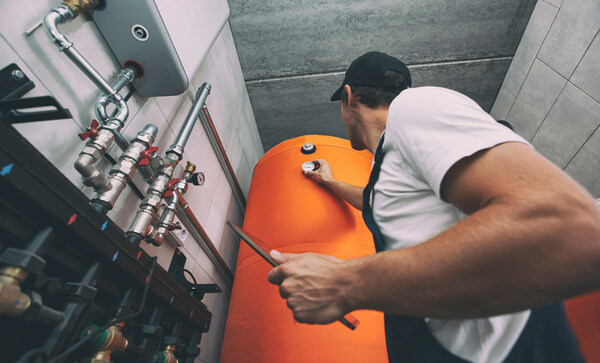
Groundbreaking Outdoor Industry Study Sets Stage to Electrify Textile and Apparel Factories
Published by Todd Bush on February 14, 2023
Burton, New Balance, Patagonia, REI Co-op, W.L. Gore & Associates, and OIA come together through OIA's Climate Action Corps to Decarbonize the Textile and Apparel Sector
BOULDER, Colo., Feb. 14, 2023 /PRNewswire/ -- Burton, New Balance, Patagonia, REI Co-op, and Gore's Fabrics Division (Gore) – five members of OIA Climate Action Corps – and OIA are pleased to release the results of a joint-commissioned study regarding the feasibility of electrifying the textile and apparel industry. The study outlines substantial opportunities to implement practices that save companies money and reduce supply chain emissions. Patagonia served as the main sponsor of the study which OIA helped to facilitate. This collaborative project is the latest in a series of steps the industry is taking to mitigate the impacts of the climate crisis.
>> In Other News: Qiming Venture Partners' Portfolio Company Lanzatech Lists on Nasdaq

Burton, New Balance, Patagonia, REI Co-op, and Gore’s Fabrics Division (Gore) – five members of OIA Climate Action Corps – and OIA released the results of a joint-commissioned study regarding the feasibility of electrifying the textile and apparel industry. The main findings of the study demonstrate that shifting to industrial heat pumps can lead to substantial energy reductions, reduced CO2 emissions, and lower costs compared to conventional systems.
The study, Electrification of Heating in the Textile Industry: A Techno-Economic Analysis for
China, Japan, and Taiwan, explored the potential energy savings, CO2 emissions reductions, and costs for electrification technology pathways.
The main findings of the study demonstrate that shifting to industrial heat pumps can lead to substantial energy reductions, reduced CO2 emissions, and lower costs compared to conventional systems. The study also provides several key recommendations for the textile industry and policymakers to scale up electrification in the textile and apparel industry and accelerate carbon emissions reductions.
"One of the biggest issues in reducing greenhouse gas emissions in our apparel and textile supply chains is thermal energy – steam and hot water for heating processes in factories. Can we use something other than coal, natural gas, or other fossil fuels? Our study demonstrates how there is an opportunity to decarbonize thermal heating processes in apparel and textile factories in a way that reduces emissions, energy, and cost over time," said Sarah Rykal, Senior Manager of OIA's Climate Action Corps. "This is the first research of its kind, and we are thrilled to now be sharing these findings with suppliers in China, Japan, and Taiwan to help increase sustainability on a broader scale. These results impact the entire fashion industry, not just the outdoor industry."
Burton, New Balance, Patagonia, REI, Gore, and OIA worked with the industrial decarbonization consulting firm Global Efficiency Intelligence to conduct the study. The goal was to gain critical insights into reducing emissions in the apparel industry's supply chain by shifting from carbon-intensive thermal heating processes currently powered by fossil fuels to more efficient, clean electrified processes where low- or zero-carbon electricity is used. The research focused on the textile industry with a special focus on tier 2 factories – facilities where materials are produced and finished before going into finished products – in China, Japan, and Taiwan, and applies to other geographies.
"Electrification of process heating will play a vital role in the deep decarbonization of the textile industry and apparel supply chain when tied to renewable electricity. However, it seems like not many managers and engineers in the textile and apparel companies are aware of this huge opportunity. There is certainly a need for more work in this area," said Ali Hasanbeigi, Ph.D., Research Director at Global Efficiency Intelligence and lead researcher for this study.
"Our global supply chain is the source of most of our carbon emissions, so we must work with factory partners to transform how we make products and reduce the harm done in our name," said Kim Drenner, Head of Supply Chain Environmental Impact at Patagonia. "We joined REI, New Balance, Gore, and Burton to collaborate with the OIA on this study, so the researchers were able to cover a diverse range of factories and stakeholders. This research is a step forward because it provides tangible, cost-effective ways for suppliers and brands to end their reliance on fossil fuels. We look forward to helping implement these improvements."
The collaborators have also hosted stakeholder engagement activities to inform stakeholders of the research findings and empower them to adopt clean heat processes that will reduce greenhouse gas emissions in the textile and apparel industry. The research results have been published on
GEI's website.
SOURCE Outdoor Industry Association
Subscribe to the newsletter
Daily decarbonization data and news delivered to your inbox
Follow the money flow of climate, technology, and energy investments to uncover new opportunities and jobs.
Latest issues
-
This $4.1M Deal Could Change Carbon Capture's Playbook
Inside This Issue 🗜️ CarbonQuest Lands $4.1M Alberta Deal on Gas Compressors 🛡️ CADO, 123Carbon, and Assure SAF Registry Join Forces to Tackle SAF Integrity Gaps ✈️ ISCC, OMV, and Airbus Partner t...
-
Can Koloma Crack Iowa's Billion-Year-Old Secret?
Inside This Issue ⛏️ Iowa's Hydrogen Rush: Can Koloma Strike Gold Before Rules Kick In? ✈️ Bentley Commits to Use 100% Sustainable Aviation Fuel for Car Airfreight 🌬️ Minister Parrott Provides Upd...
-
$47M Just Poured Into This SAF Producer
Inside This Issue 💰 LanzaJet Announces $47M in New Capital and First Close of Equity Round at $650M Pre-Money Valuation 🚢 Maersk's Ethanol Bet Could Reshape U.S. Fuel Markets 🪨 Canada Nickel and t...
Company Announcements
-
RCJY and Climeworks Deepen Partnership to Advance Large-scale Direct Air Capture in Saudi Arabia
Key takeaways: Under the guidance of the Ministry of Energy, the Royal Commission for Jubail and Yanbu and Climeworks have signed a Memorandum of Understanding to expand their collaboration on de...
-
CHARBONE Confirms New UHP Hydrogen Orders and its First UHP Oxygen Order in the United States
Brossard, Quebec, February 25, 2026 – CHARBONE CORPORATION (TSXV: CH; OTCQB: CHHYF; FSE: K47) (“CHARBONE” or the “Company”), a North American producer and distributor specializing in clean Ultra Hi...
-
Climeworks Establishes Canadian Headquarters in Calgary
Calgary, Alberta, February 20, 2026 — Climeworks, a global leader in commercial carbon removal, has established its Canadian headquarters at Calgary’s ETC, one of Alberta’s leading hubs where start...
-
MIAMI, Feb. 24, 2026 /CNW/ - Power Sustainable Infrastructure Credit ("PSIC") recently closed an $85M senior secured financing for Sagepoint Energy ("Sagepoint"), a vertically integrated renewable ...